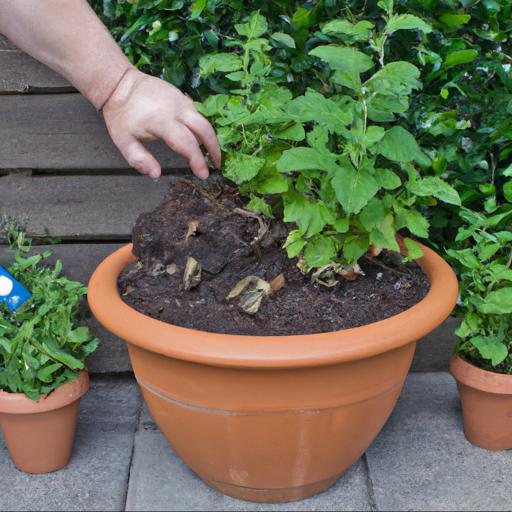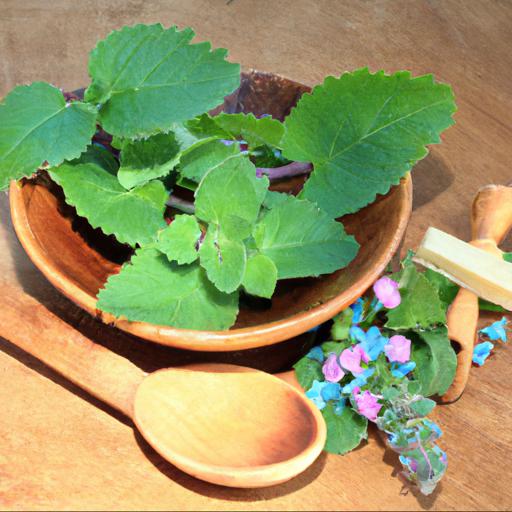Melissa officinalis, commonly known as lemon balm, is an herb native to the Mediterranean region. It has a long history of use in traditional medicine and is prized for its calming and soothing properties. Recent studies have shown that lemon balm has a number of health benefits, including improved sleep, improved mood, and reduced anxiety.
It is also believed to have anti-inflammatory and antimicrobial properties, making it an effective natural remedy for a variety of ailments. In this blog, we will explore the history, benefits, and uses of Melissa officinalis.
Health benefits of melissa officinalis

Melissa officinalis, popularly known as Lemon Balm, is a herbaceous perennial plant native to Europe and parts of North America. This fragrant herb has been cultivated for centuries, mainly for its medicinal properties. Its fragrance is beloved, the leaves often used to make perfumes, cosmetics, and soaps.
Its traditional applications include treatments for depression, indigestion, and menstrual cramps. Melissa officinalis has been found to have numerous health benefits.
A major benefit is its ability to reduce anxiety. The essential oils in Melissa officinalis work as a natural sedative, helping to relieve stress and improve moods. Studies have also suggested that it can help to decrease heart rate and reduce blood pressure.
Other benefits of Melissa officinalis include its ability to boost the immune system, reduce inflammation, and act as an antispasmodic. It may also be beneficial for memory and cognitive functions, and for treating digestive issues.
The medicinal properties of the plant are found mainly in its leaves and flowers, which can be either fresh or dried. Lemon Balm can be brewed as a tea for immediate relief.
It can be added to a bath for a calming effect, or used as a compress or poultice. The herb can also be combined with other herbs to create syrups and tinctures, which can be taken orally to provide relief from a variety of ailments. Overall, Melissa officinalis is a versatile and safe herbal remedy with many potential health benefits.
With its versatile medicinal properties and pleasant aroma, it’s no wonder that Lemon Balm has been a popular ingredient in home remedies for centuries. So whether it’s used to cure what ails you or just to provide an enjoyable aroma to your home, this herb is definitely worth giving a try.
How to grow melissa officinalis

Growing Melissa officinalis, commonly known as lemon balm, is a great way to bring a unique flavor to your garden. Aside from its pleasant scent and citrusy flavor, Melissa officinalis is easy to grow, requiring relatively little maintenance and low-level care. Whether you’re a beginner or an experienced gardener, you can expect to have success with the herb.
When planting Melissa officinalis, it’s important to select an area of your garden that will receive adequate sun since the herb requires at least 6 hours of sunlight per day. The soil should be light and well-drained, never waterlogged and always with a pH of
5 to 0. Planting the herb in this type of soil will provide the perfect environment for its growth.
It’s also important to ensure that you mulch the soil around the herbal plant to ensure the roots are kept cool and moist during the summer period. When it comes to caring for your Melissa officinalis, it’s advised to water them at least once a week during the growing season and no more than once a week during the winter.
To keep the herb healthy, it’s important to keep the soil slightly moist and to remove any weeds that may be competing for nutrients or sunlight. Fertilize with an organic fertilizer once a month during the growing season to keep the herb thriving.
To harvest the herb, you’ll want to wait until after the first frost of the season. This is when the flavor of the herb reaches its peak. Gently pinch off the top leaves and leave the plant so it can continue to grow and produce new shoots for future harvesting.
To avoid damaging the plant, it’s important to only take what is needed and leave the stem and roots intact. Overall, growing Melissa officinalis is a great way to bring a delicious and unique flavor to your garden. With the proper care and maintenance, you can ensure that the herb continues to thrive and produce the best results!
Recipes using melissa officinalis

Welcome to explore the world of Melissa officinalis, also known as lemon balm, an herb known for its unique citrus flavor. Highly versatile and with a delightful taste, Melissa officinalis can be used to make a variety of recipes that make for an enjoyable meal. Whether you are an experienced cook or an amateur looking for new ideas, Melissa officinalis can really bring out the best in any dish.
Try combining the flavors of this aromatic herb with grilled chicken for a zesty accompaiment or adding it to a summer salad for a fresh, lemony twist. You can also easily use it to create a myriad of recipes from soups, sauces and desserts.
Melissa officinalis can also be incorporated into your teatime treats. Biscuits and cakes have an enhanced flavor when lemon balm is mixed with sugar. Additionally, you could add the leaves to your herbal tea pot to create a refreshing digestive brew, or use the freshly pressed juice in a syrup or cordial.
Whatever your preference, incorporating Melissa officinalis into your culinary repertoire is sure to impress.
Bottom Line
Melissa officinalis, also known as lemon balm, is an herb native to the Mediterranean region. It has a long history of use in traditional medicine and is known for its calming and soothing properties. It is often used to treat anxiety and insomnia, and can also be applied topically to treat skin conditions.
It can be consumed as a tea, tincture, or capsule, or applied topically as an essential oil or cream. Melissa officinalis is a safe and effective herbal remedy for many common health issues.
FAQ
What are the health benefits of Melissa officinalis?
The health benefits of Melissa officinalis include reducing anxiety and stress, improving sleep quality, aiding digestion, boosting the immune system, and helping to treat headaches, colds, and other respiratory illnesses.
What are the traditional uses of Melissa officinalis?
Traditional uses of Melissa officinalis include treating digestive issues, reducing anxiety and stress, and improving sleep. It has also been used to treat headaches, colds, and fever.
What are the active components of Melissa officinalis?
The active components of Melissa officinalis include essential oils, flavonoids, tannins, and terpenes.
How is Melissa officinalis used in aromatherapy?
Melissa officinalis is used in aromatherapy as an essential oil to help reduce stress, anxiety, and depression. It is also believed to have calming and soothing effects on the body and mind.
What are the potential side effects of Melissa officinalis?
The potential side effects of Melissa officinalis include nausea, vomiting, headache, dizziness, and abdominal pain. It may also cause allergic reactions in some people. Additionally, it may interact with certain medications, so it is important to consult a healthcare provider before taking it.
How is Melissa officinalis prepared for medicinal use?
Melissa officinalis is prepared for medicinal use by drying the leaves and flowers and then crushing them into a powder or making them into a tea. The tea can be consumed or applied topically as a compress. The powder can be added to capsules or mixed with other herbs to make a tincture.

